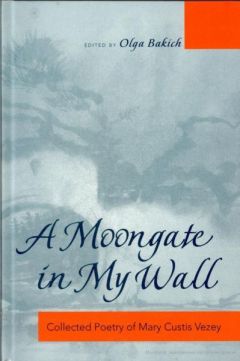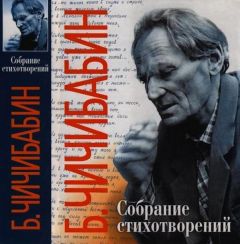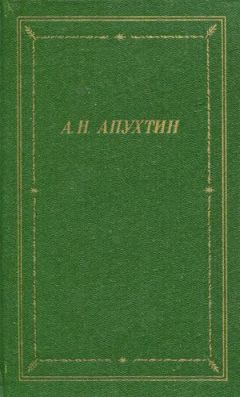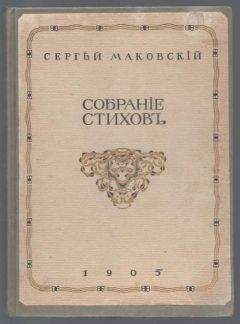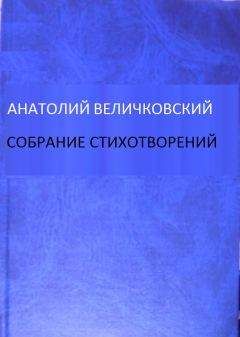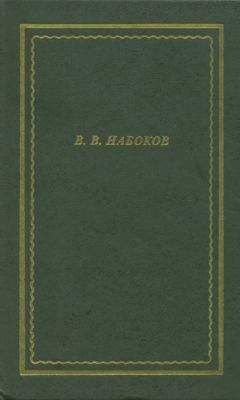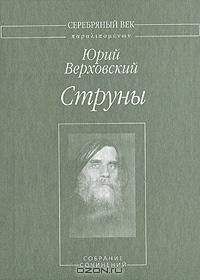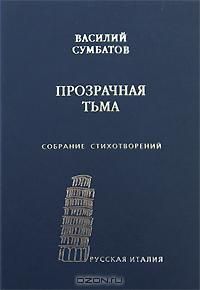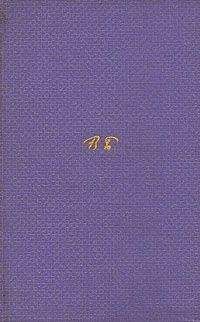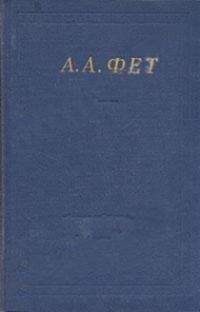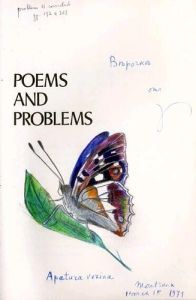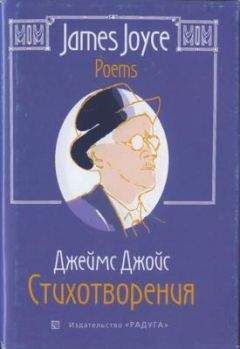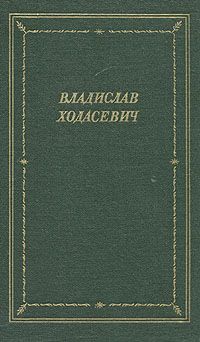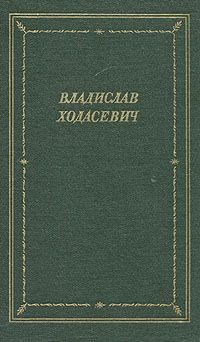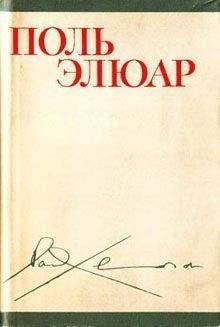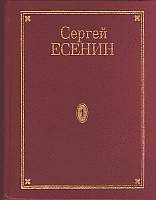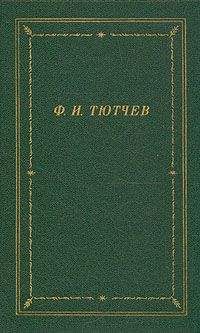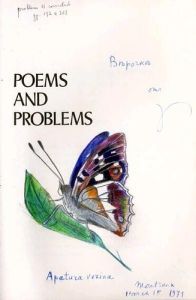Мария Визи - A moon gate in my wall: собрание стихотворений
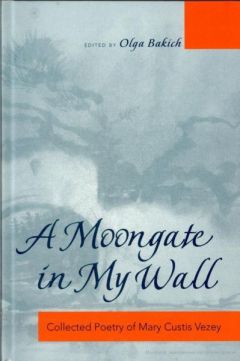
Скачивание начинается... Если скачивание не началось автоматически, пожалуйста нажмите на эту ссылку.
Жалоба
Напишите нам, и мы в срочном порядке примем меры.
Описание книги "A moon gate in my wall: собрание стихотворений"
Описание и краткое содержание "A moon gate in my wall: собрание стихотворений" читать бесплатно онлайн.
Мария Визи (1904-1994) – поэтесса «первой волны» русской эмиграции. Данное собрание стихотворений, изданное в США, под редакцией Ольги Бакич, наиболее полное на данный момент собрание ее поэтических произведений и переводов.
Издание состоит из 4 частей и включает в себя:
1. Три опубликованных сборника М. Визи: 1929, 1936 и 1973 гг.
2. Стихотворения, не вошедшие в сборники, написанные на русском языке.
3. Стихотворения, не вошедшие в сборники, написанные на английском языке.
4. Неопубликованные переводы
Вступительная статья и комментарии на английском языке.
All her life she kept both the offprint and the envelope in which it was sent to her.
Another review, by Harbin poet Vasilii Loginov (1891–1946), criticized her poetry for "unusual, perhaps excessive, grammatical correctness" and argued that some sentences did not sound quite Russian. Further shortcomings, in his opinion, were "the youthful insignificance of the majority of poems," "the almost complete absence of sexuality," and "almost no lyrics and erotica." On the other hand, Loginov praised an "almost Levitan-like feeling for landscape" and "the great significance and force" of some poems. His conclusion was that "a certain poetic and artistic taste (…) was apparently formed by such perfect masters as Blok and Gumilev, who stretched a blessing hand over all Vezey's poems."[16] Not knowing English, neither Nesmelov, nor Loginov mentioned the English poems and translations.
The collection was welcomed in Claremont; a reviewer particularly noted that "one poem is entitled 'Claremont/ though it is in Russian, a tantalizing combination which was a great disappointment to everyone who wanted to read it." The translation of the poem (poem 28) into English by Professor Dietrich Neufield of Pomona College and Linda Schroeder, completed the review.[17]
At the end of the 1920s and beginning of the 1930s, Mary Vezey turned to translating Russian emigre poetry. Responding to her translations of his poems, a Paris poet Lazar' Kel'berin wrote: "You translate with surprising precision, retaining naivete, meaning and style; you are very talented. Moreover, you are doing a valuable cultural work by translating Russian poets who write in foreign lands and introducing them to English readers." The praise was combined with advice: "That's why, Miss Mary, 1 believe that it is better to give English readers samples of true and great poetry, that of Blok and Gumilev; add O. Mandel'shtam, A. Akhmatova, N. Otsup, G. Adamovich, Vladislav Khodasevich, but not us, the young ones, the beginners, who might give uninitiated readers a false impression of Russian poetry. Of course, what young poet would not be flattered to be published, translated! But one cannot publish Blok and, for example, me together. Under one cover one should publish poetry of an approximately equal value. If you like, send me a few translations of Blok and Gumilev."[18] Another Paris poet, Vladimir Smolensk», wrote that although he did not know English, "people who know English tell me that the translations were done very well. Therefore, I ask you to accept my most sincere gratitude. As for including my poems in the collection which you want to publish, of course I shall be very glad and I give you my full permission."[19] Both Kel'berin and Smolenskiy asked the same question: "Do you write poetry in Russian?"
By the end of 1920s, the political situation in northeast China (called Manchuria by the foreigners) had changed. Since 1924, the Chinese Eastern Railway had been operated jointly by the USSR and the Chinese Republic, but their relations steadily worsened. In 1929, a serious conflict led to military action on the west border, easily won by the USSR. In autumn 1931-winter 1932, Japan occupied the three northeast provinces of China and in March 1932 established the puppet state of Manchukuo. Two years later, Manchukuo was transformed into the Great Manchu Empire with the puppet emperor Pu Yi on the throne. The USSR was forced to sell its share of the Chinese Eastern Railway to Japan in 1935 and pull out of the area.
Henry Vezey's newspaper Harbin Daily News closed in 1932, and in 1933 the Vezey family moved to Shanghai, as many Harbin Russians did in the 1930s. Shanghai was too international to allow for the creation of the Russian atmosphere typical of Harbin, but nevertheless there was some Russian cultural and literary life, including publication of books, newspapers, and journals. In Shanghai, Mary Vezey worked for foreign firms and continued to write poetry and some short stories, the latter published under a pseudonym of A. Raevskaia.[20]
Her second collection of poetry came in 1936. Entitled as simply as the first one, Slikholvoreniia (Poems), but numbered II, it contained 52 poems, all in Russian. Most copies of this collection were allegedly "eaten by rats" during the 1937 Japanese attack on Shanghai, as Mary Vezey was later informed by the publishers V.P. Kamkin and Kh.V. Popov,[21] Like the first collection, it became a bibliographical rarity.
Reviewing the second collection, Harbin poet Natalia Reznikova wrote that in Vezey's poetry "the influences of A. Blok and Anna Akhmatova are organically intertwined. (…) However, Blok's motifs provide relief from the concrete, earthly, sensual "Akhmatova style" and impart transparency, detachment, and a seraphic quality to her current poems. M. Vezey's own independence is felt in precisely this combination of almost incompatible elements. (…) It's true that the metre is not always strictly observed, and some poems are technically weak, but this lack of technique in Vezey's poetry does not irritate. There is something of wildflowers, of unmowed meadows, in these inconsistent lines, broken like intakes of breath."[22] An anonymous reviewer admired "the purest lyricism" and "the melancholic mood of the author," while in another unsigned review it was pointed out that "her main inspiration is Blok and Gumilev" and she was praised for her "poetic competence," "lines impeccable in their rhythm and metre" and "noble simplicity."[23]
The collection was noticed in Europe. In 1937, the Shanghai-Paris journal Russkie zapiski (Russian Notes) reviewed several books published in Shanghai. The reviewer, concealed under the initials I.F., commented on Mary Vezey's poetry: "in the first collection, the Russian poems seemed like a translation from English, and the English poems a translation from Russian." This second collection, he continued, shows hard work, but new poems "lack independence. One feels the influence of Blok, of the lyrical poetry of Gumilev, and most of all of Akhmatova. These are real 'women’s' poems. Most of them are sad love lyrics."[24]
At the end of the 1930s, the Si no-Japanese War was raging in China, and the Second World War was about to engulf the world. In 1939, the Vezey family left China for San Francisco, a city favoured by many Russians from China. Mary Vezey's father, who had fallen seriously ill in Shanghai, died soon after their arrival in 1939; her mother in 1950. In September 1940, Mary Vezey married Evgenii Fedorovich Tourkoff (1908–1981), a Harbin Russian, a graduate of the Harbin Polytechnic Institute, an engineer, and soon they had a daughter Olga. In the 1960s, Mary Vezey worked as an assistant secretary to Professor Edwin B. Boldrey, a prominent neurosurgeon and Chairman of Neurological Surgery at the University of California Medical Center.
She continued to write and translate, and her poems appeared in emigre periodicals in the USA and Europe. Eight poems were included in Sodruzhestvo (Concord) (Washington, 1966), a significant collection representing the work of 75 living Emigre poets. In the 1960s, she offered a collection of her translations of the emigre poets Dmitrii Klenovskii and Vladimir Smolenskii to the Wesleyan University Press, Connecticut, explaining in the proposal: "Klenovsky (now living in Germany) is regarded as the most important of the Russian emigre poets. (…) He is quite unknown in English, although represented in an anthology published by Edinburgh University, as well as in an important German anthology. Smolensky, who died in Paris in 1961, was another Emigre who attained lasting fame among readers of Russian poetry. Both men will be read and admired long after Evtushenko and Voznesensky are forgotten."[25] At the time, however, there was not much interest in emigre poets, and no publisher was found.
In 1973, her third collection, Golubaia trava (Blue Grass), dedicated to her husband, came out in San Francisco. It contained 47 poems in Russian; sixteen came from the second collection, one had already appeared in the Paris journal Vozrozhdenie (Resurrection), and another both in Vozrozhdenie and in the collection Sodruzhestvo. All are undated, and only the reader familiar with the second collection can see what is new.
Iu.V. Kruzenshtern-Peterets, a former Harbin poet and journalist, praised the poet in her review for "powerful and beautifully polished" poems, for "mystical," "Blok-like" pictures, and for Gumilev's motifs, reserving special praise for the poem "Etiud" (Etude) (poem 233). She had reservations about the key poem "Ostrova" (Islands) (poem 214): it lacked "the music inherent in the poet's works, and the precision of line," and 'suffered from rhetoric."[26] In a radio broadcast for "The Voice of America," Iu.V. Kruzenshtern-Peterets said that in Mary Vezey's poetry "one can trace some influence of the symbolists as is evident from the very title of the book. 'Blue grass' grows on an island yet unseen by man; perhaps it is a magical country, perhaps a paradise. At the same time, in Mary Vezey's poetry one can find an affinity with acmeism: dislike of formal pretentiousness, fineness of line, genuine lyricism, and, the main thing, melodiousness. Her poems sing."[27]
Another reviewer, the priest A. Pavlovich, praised "the exceptional sincerity of the poet," "the fine cast of her heart," "the high personal expectations," "the exemplar)' form of her presentation," "her simplicity" and "her serenity,"[28] while in the opinion of the emigre poet lu. Terapiano the poems "bear evidence of great experience: they are not only sincere, but also well reasoned, inwardly focused, and concentrated. In her poetry, ordinary pictures of nature, urban landscapes, and daily surroundings common to us are always related to personal feelings and are perceived both here, on earth, and on a higher plane. I… J With short broken lines and the simplest images she can give a picture filled with inner content and great concealed meaning."[29]
Emigre poet Valerii Pereleshin thought very highly of Vezey's poetry, writing to her about the poem "Как strashno odinoki my na svete" (How terribly lonely we are in this world) (poem 244): "Harbin can be proud of you as a poet. The poem is beautiful and technically perfect. 1 must say that I am waiting for your book with impatience. And 1 foresee that 'the universal scale' of ЈmigrЈ poetry will shift as soon as this future book comes out. (…) And another special praise: your rhymes are precise, taken from the living language, not composed."[30] In another letter, he defined her poetry as "poems with 'reticence' which have to be thought through. I love such poems. (…) I always welcome 'reticence': this is partly the influence of the Chinese classical poets who never dotted their 'i's. The reader was a participant in the creation. Poems with 'reticence' are far from 'nonsense.' They are also justified by the fact that poetic feeling is always irrational to some degree, not fully expressible. (…) It is great that you are sparing and laconic in your poems. I regard this as an ideal of poetic architecture. I think that Soviet poets are so long-winded because they are paid per line. No one pays emigre poets anything for their poetry."[31]
His review, however, expressed his contentious view of "women poets." On the one hand, he characterized Golubaia trava as "a collection of pure, good poetic quality, written by a woman-poet (zhenshchina-poet \." For him, many poems exhibit the style of "a poet, not a poetess" (poet, a ne poetessa) and in them "Pegasus takes flight, and the spirit touches the outlines of the beyond. I…) In spite of its purely feminine emotionality, Golubaia trava is an excellent book." On the other hand, he stated: "M. Vezey dedicates her third book to her husband, and this places her among the followers of Akhmatova. (…) As a poetess (poetessa J, M. Vezey is very strong, but for me personally, poetry begins at the place where the poetess ends and the poet begins. Mary Vezey has quite a few poems which are already free from emotionality which is hard to overcome, and one is extremely pleased by the poems where she speaks simply as a person, and not as a woman."[32] This chauvinistic prejudice and confusion of issues are reflected in Pereleshin's poem "Nochnie proletaiut poezda" (Night trains rush on), dedicated to Mary Vezey, where Pereleshin speaks of her "sadness with its enormous eyes," her barely audible voice, almost a whisper, and her "impersonal," "asexual" signature "M. Vezey."[33] Her surname, indeed, does not indicate gender in the way many Russian surnames do, but what he failed to understand was that this signature, instead of "Mary Vezey," meant that to a true poet gender did not matter.
In the 1970s and 1980s, Mary Vezey continued to write and translate in Russian and in English. In the summer of 1985, Mary Vezey and Valerii Pereleshin began working on an anthology of Russian poetry of China, tentatively entitled "U dobrogo drakona" (In the Home of a Kind Dragon).[34] The work took a lot of time and effort. Pereleshin soon bowed out, hoping that Leiden University would supplement his forthcoming memoirs "Dva polustanka" (Two Wayside Stations) with an anthology He informed Mary Vezey that the joint compilation was now hers alone and in the further correspondence kept calling it "your anthology." When Pereleshin's death on 7 November 1992 ended his indirect participation, Mary Vezey did not abandon the project: "1 hope to complete my literary work, no matter how insignificant it was, with this anthology.”[35] (…) The main desire and goal were to save this 'lost generation' and its valuable heritage from disappearance."[36]
In 1991, when Mar)' Vezey was asked about her next collection of poems, the answer was: "I have little time left, and I won't be able to accomplish much. I am not as strong as I used to be. But I would still like to publish three little books of mine: one of poetry (the last one), one of translations into English, and one more (a special one). But before that — not my poetry, but that of colleagues and friends who can no longer do it.[37] (…) I can't allow myself to publish something of mine; my goal is to preserve the unpublished works of my compatriots and colleagues."[38]
Mary Vezey died on 18 October 1994 in San Francisco.
In one early poem she wrote: "This is not a poem, this is the music of the soul" (poem 275), and musicality is inherent in her poetry, as it is for many romantics and symbolists who considered music the highest form of art. The tonality of her music is sadness; Blok's "heavy flame of sadness"[39] is the key to her entire poetry: "great sorrow is given to us, / and we carry it as a banner" (poem 180). Its root lies in the contrast between the crude, gray life on earth and the vision of the other, beautiful world: "the soul did not have enough words / to tell of the sadness of dreams" (poem 468). One of the key symbols of this other, invisible world is a star, and her first collection opens with a poem where a white star falls down "to a cold, dry reality" (poem 1). In a poem dedicated to her brother, the poet says: "We both came not from this world, / but from a different star /(…) we live with a blessed hope / to see that star again" (poem 54).
Sad love lyrics are prominent in her early poetry: "I wrote my poems not for you at all, / but for my dream" (poem 295). Over the years, this "sadness with its enormous eyes"[40] focuses on the sorrows of contemporary life: "there is so little warmth and joy in the world—/God, save and have mercy on people and animals!" (poem 441). The poet sees homeless, sick, old people, lost in a big city, hears an abandoned dog howling by locked gates, mourns the victims of the Civil War in Biafra and of the Vietnam War. Ten terse lines of "Nalet" lAir Raid) (poem 4B1) describe the bombing of a shipyard, the death of thirty-five children in an orphanage nearby, and the shooting down of an airplane. This dispassionate narrative is broken twice: in the second line, a woman's voice begs the pilot: "Take care! God be with you!/' and in the last line the same voice is barely able to contain its grief; "Only one did not come back — mine." The children in the enemy city perished, and so did the beloved who bombed it.
Подписывайтесь на наши страницы в социальных сетях.
Будьте в курсе последних книжных новинок, комментируйте, обсуждайте. Мы ждём Вас!
Похожие книги на "A moon gate in my wall: собрание стихотворений"
Книги похожие на "A moon gate in my wall: собрание стихотворений" читать онлайн или скачать бесплатно полные версии.
Мы рекомендуем Вам зарегистрироваться либо войти на сайт под своим именем.
Отзывы о "Мария Визи - A moon gate in my wall: собрание стихотворений"
Отзывы читателей о книге "A moon gate in my wall: собрание стихотворений", комментарии и мнения людей о произведении.





